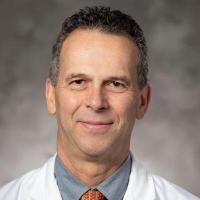Markers of Tissue Repair and Cellular Aging Are Increased in the Liver Tissue of Patients With HIV Infection Regardless of Presence of HCV Coinfection.
Date
2018-07
Journal Title
Journal ISSN
Volume Title
Repository Usage Stats
views
downloads
Citation Stats
Abstract
Liver disease is a leading cause of HIV-related mortality. Hepatitis C virus (HCV)-related fibrogenesis is accelerated in the setting of HIV coinfection, yet the mechanisms underlying this aggressive pathogenesis are unclear. We identified formalin-fixed paraffin-embedded liver tissue for HIV-infected patients, HCV-infected patients, HIV/HCV-coinfected patients, and controls at Duke University Medical Center. De-identified sections were stained for markers against the wound repair Hedgehog (Hh) pathway, resident T-lymphocytes, and immune activation and cellular aging. HIV infection was independently associated with Hh activation and markers of immune dysregulation in the liver tissue.
Type
Department
Description
Provenance
Citation
Permalink
Published Version (Please cite this version)
Publication Info
Naggie, Susanna, Marzena Swiderska-Syn, Steve Choi, Sam Lusk, Audrey Lan, Guido Ferrari, Wing-Kin Syn, Cynthia D Guy, et al. (2018). Markers of Tissue Repair and Cellular Aging Are Increased in the Liver Tissue of Patients With HIV Infection Regardless of Presence of HCV Coinfection. Open forum infectious diseases, 5(7). p. ofy138. 10.1093/ofid/ofy138 Retrieved from https://hdl.handle.net/10161/26708.
This is constructed from limited available data and may be imprecise. To cite this article, please review & use the official citation provided by the journal.
Collections
Scholars@Duke

Susanna Naggie
Dr. Susanna Naggie completed her undergraduate degrees in chemical engineering and biochemistry at the University of Maryland, College Park, and her medical education at Johns Hopkins School of Medicine. She conducted her internal medicine and infectious diseases fellowship training at Duke University Medical Center, where she also served as Chief Resident. She joined the faculty in the Duke School of Medicine in 2009. She is a Professor of Medicine and currently holds appointments at the Duke University School of Medicine, at the Duke Clinical Research Institute, and at the Durham Veterans Affairs Medical Center. Dr. Naggie is a clinical investigator with a focus in clinical trials in infectious diseases and translational research in HIV and liver disease. She is a standing member of the DHHS Panel on Antiretroviral Guidelines for Adults and Adolescents and the CDC/NIH/IDSA-HIVMA Opportunistic Infections Guideline. She is the Vice Dean for Clinical and Translational Research and Director for the Duke Clinical and Translational Sciences Institute.

Steven Sok Choi
Hepatic stellate cell biology; Hepatic Fibrogenesis; Liver regeneration

Guido Ferrari
The activities of the Ferrari Laboratory are based on both independent basic research and immune monitoring studies. The research revolves around three main areas of interest: class I-mediated cytotoxic CD8+ T cell responses, antibody-dependent cellular cytotoxicity (ADCC), gene expression in NK and T cellular subsets upon infection with HIV-1. With continuous funding over the last 11 years from the NIH and Bill & Melinda Gates Foundation along with many other productive collaborations within and outside of Duke, the Ferrari Lab has expanded its focus of research to include the ontogeny of HIV-1 specific immune responses that work by eliminating HIV-1 infected cells and how these can be induced by AIDS vaccine candidates.

Cynthia Dianne Guy
My research interests include:
Fine Needle Aspiration of Liver, Gastrointestinal Tract, and Pancreatic Lesions
Biliary Duct Brushings
Nonalcoholic Fatty Liver Disease/NASH
Liver Fibrogenesis

Anna Mae Diehl
Our lab has a long standing interest in liver injury and repair. To learn more about the mechanisms that regulate this process, we study cultured cells, animal models of acute and chronic liver damage and samples from patients with various types of liver disease. Our group also conducts clinical trials in patients with chronic liver disease. We are particularly interested in fatty liver diseases, such as alcoholic fatty liver disease and nonalcoholic fatty liver disease (NAFLD).
Research by our group has advanced understanding in two main areas: 1) immune system regulation of liver injury and regeneration and 2)the role of fetal morphogens, such as the hedgehog pathway, in regulating fibrotic responses to liver damage. Our basic research programs have been enjoyed continuous NIH support since 1989. We welcome students, post-doctoral fellows and visiting scientists who have interests in this research area to contact us about training opportunities and potential collaborations.
Since 2001 we have also been an active participant in the NIDDK-funded Nonalcoholic Steatohepatitis Clinical Research Network (NASH CRN), a national consortium comprised of 8 university medical centers selected to generate a national registry for patients with NAFLD and to conduct multicenter treatment trials for this disorder. We are actively recruiting patients for this program, as well as a number of other industry-supported NAFLD studies.
Unless otherwise indicated, scholarly articles published by Duke faculty members are made available here with a CC-BY-NC (Creative Commons Attribution Non-Commercial) license, as enabled by the Duke Open Access Policy. If you wish to use the materials in ways not already permitted under CC-BY-NC, please consult the copyright owner. Other materials are made available here through the author’s grant of a non-exclusive license to make their work openly accessible.
